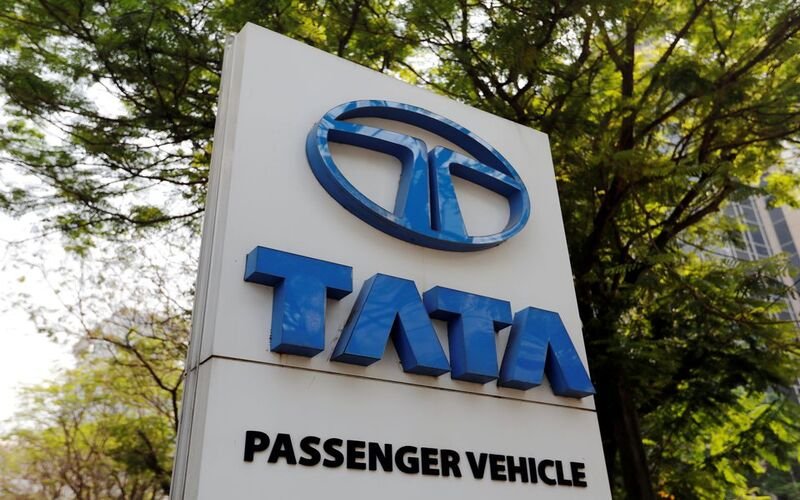According to individuals with direct knowledge of the situation, Tata Motors (TAMO.NS) is exerting pressure on Indian officials to refrain from lowering import duties on electric vehicles by one hundred percent and to protect indigenous industry and its investors. This is at a time when the government is evaluating Tesla’s ambitions to enter the market.
Tesla (TSLA.O) proposes establishing a plant in India, but it requests that import duties for electric vehicles be reduced. This comes when India is working to increase local manufacturing and the use of electric vehicles.
In India, a new strategy is being developed to reduce the import duties on electric vehicles to as low as 15% for businesses that agree to produce part of their products locally. The proposal may allow Tesla to establish a plant in India to produce the $24,000 car it has suggested while simultaneously importing its more costly models with a reduced tax rate.
As a departure from its unsuccessful plan from the previous year, in which it only pressed India to cut tariffs, Tesla’s approach includes a departure.
According to two individuals who know the discussions, Tata has expressed opposition to the proposal during meetings with the office of Prime Minister Narendra Modi and other ministries. The company has argued that its investors have made choices based on the assumption that the tax structure that favors locals will stay unaltered.
In response to demands for comment, neither Tata nor Modi’s office responded. According to the first source, Tata is also saying that India’s electric vehicle (EV) players require further government help in the early growth stage of the business. He refers to imported gasoline or diesel automobiles, which are subject to additional taxes of up to one hundred percent even though the industry is already well developed.
“Lower duties will hit the entire (domestic) industry,” the individual stated, further stating that “the investment climate will get vitiated.”
In 2019, Tata, one of the largest automobile manufacturers in India, launched its electric vehicle (EV) business. A private equity firm called TPG and an Abu Dhabi state holding company called ADQ invested one billion dollars in the electric vehicle (EV) sector in 2021, valuing it at about nine billion dollars. A second source stated that reduced levies for international companies might endanger future funding.
India’s electric vehicle industry is very modest, yet Tata has produced 74% of the 72,000 electric cars delivered in 2018.
Tesla, which is seeing a decline in market share in the United States and is becoming increasingly competitive, has its sights set on the potential of India’s automobile industry, one of the largest in the world and where more than three million automobiles are sold annually. EVs currently only make up a tiny percentage of the market in India. Still, Modi’s government is actively encouraging the use of clean cars, and the industry is expanding rapidly.
Since he met with Tesla CEO Elon Musk in New York in June, Modi has been directly monitoring discussions with Tesla.
A Tata Motors official stated in late 2021 that the change would be “contrary” to the government’s Make-in-India strategy. This resulted from the local automobile industry’s successful lobbying efforts against Tesla’s prior plan for India to slash taxes.
THE PERSPECTIVE OF THE INDIAN GOVERNMENT
According to a third source, a senior federal official involved in policymaking, Mahindra & Mahindra (MAHM.NS), another Indian participant, has also expressed concerns with authorities on the reduced electric vehicle tax proposal. Mahindra & Mahindra has collected around $400 million from Temasek, located in Singapore, and British International Investment.
When asked for a comment, Mahindra declined. According to the third source, New Delhi is attempting to ease the anxieties of domestic automobile manufacturers; nonetheless, India is still resolute in its commitment to simplify the process of entering the electric vehicle (EV) market for international companies to assist it in achieving its objectives.
As opposed to the present 2%, Modi’s goal is to increase the percentage of electric vehicles sold in India to 30% by the year 2030. Likewise, the infrastructure for charging is still in its infancy.
“We will come out with a policy that addresses everyone’s fears,” the official said, adding that one possibility was to cut import tariffs only over a specific price threshold. “We will create a policy that addresses everyone’s fears.”
In India, the electric vehicle import tax is currently set at 100% for vehicles that cost more than $40,000, including most Tesla models. Tata’s three electric vehicles range from $10,400 to $24,000.
If India becomes a powerhouse for electric vehicles, we need more manufacturing. “There is no need for the local industry to be concerned that Tesla or any other company will eradicate them,” the Indian official stated.
The discussions between India and Tesla occurred when other nations pursued the American powerhouse.
This week, the Prime Minister of Thailand stated that he had shown Tesla executives around the nation when they were searching for property. He expressed his complete confidence that the business would invest in Thailand.






































Comment Template